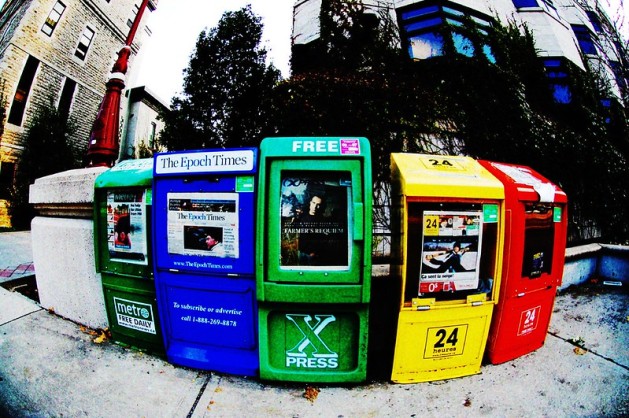
Sen. Amy Klobuchar is a lead sponsor of the Journalism Competition and Preservation Act. Photo (cc) 2019 by Gage Skidmore.
A bill that could force Google and Facebook to fork over billions of dollars to local news outlets has lurched back to life. The Journalism Competition and Preservation Act, or JCPA, would allow publishers to negotiate as a bloc with the two giant tech platforms, something that would normally be prohibited because of antitrust concerns. The proposal would exclude the largest publishers and, as Rick Edmonds notes at Poynter Online, would lead to binding arbitration if the two sides can’t reach an agreement.
The legislation’s cosponsors in the Senate are Amy Klobuchar, D-Minn., and John Kennedy, R-La.; the House cosponsors are David Cicilline, D-R.I., and Ken Buck, R-Colo. That bipartisan support means the bill might actually be enacted. But is it a good idea?
You can support this free source of news and commentary for just $5 a month. Please click here.
The premise on which the legislation is built is that Google and Facebook should pay fair compensation for repurposing the news content that they use. This strikes me as being much more straightforward with Google than with Facebook. Google’s mission is to index all the world’s knowledge, including journalism; Facebook is a social network, many of whose users post links to news stories. Facebook isn’t nearly as dependent on journalism as Google is and, in fact, has down-ranked it on several occasions over the years.
Google’s responsibility isn’t entirely clear, either. Yes, it links to news stories and publishes brief snippets. But it’s not a zero-sum situation — there’s no reason to believe that Google is depriving news publishers of traffic. It’s more likely that Google is pushing users to news sites and, with the rise of paywalls, may even be boosting subscriptions for local news outlets. Still, you could make a philosophical argument that Google ought to pay something because it benefits from having access to journalism, regardless of whether that deprives news outlets of any revenues.
A similar law in Australia has brought in $140 million, Edmonds reports. But critics have complained that the law’s main effect has been to further enrich Rupert Murdoch, still the leading press baron in his native country.
The JCPA should not be confused with the Local Journalism Sustainability Act, or LJSA, which would provide three tax credits for local news outlets — one for subscribers, who would get to write off news subscriptions on their taxes; one for advertisers; and one for publishers for hiring and retaining journalists. As Steve Waldman, chair of the Rebuild Local News Coalition, recently told us on the “What Works” podcast, this last provision is especially powerful because it would provide an incentive to do the right thing even at bottom-feeding chains owned by Alden Global Capital and Gannett.
Despite bipartisan support, the LJSA ran aground last year when President Biden split off the publishers’ credit and added it to the doomed Build Back Better bill. Perhaps it will be revived.
Is either measure needed in order to revive local news? What Ellen Clegg and I have found in the course of reporting for our book-in-progress, also called “What Works,” is that many independent local and regional news organizations across the country, nonprofit and for-profit alike, are doing reasonably well without government assistance. Since both the JCPA and the LJSA would be time-limited, maybe it’s worth giving them a try to see what the effects will ultimately be. But neither one of them will save local news — nor is it clear that local news needs saving once you remove the dead hand of corporate chain ownership.




